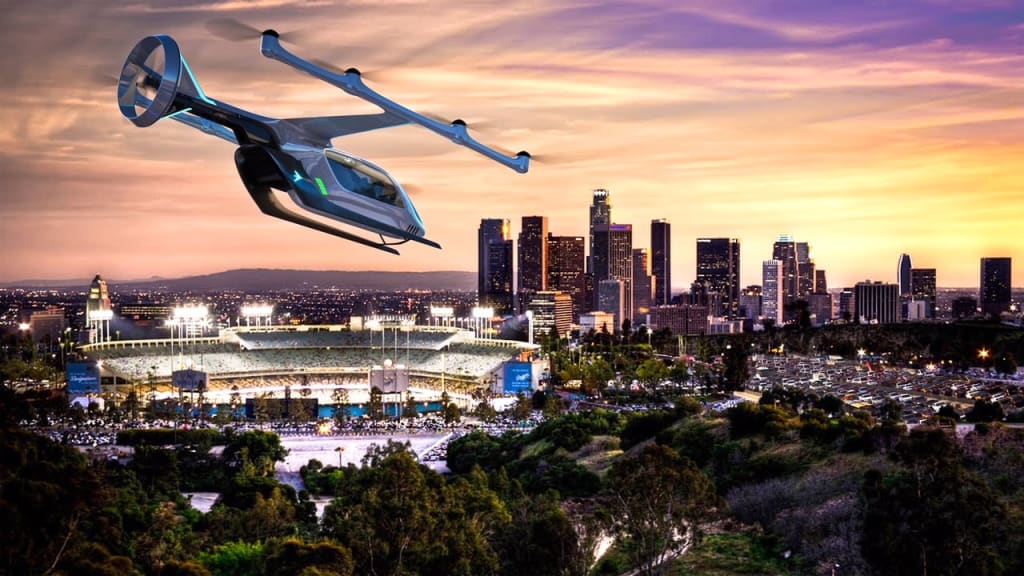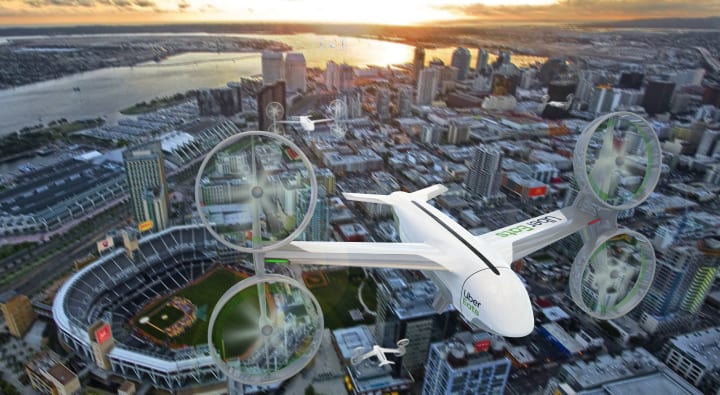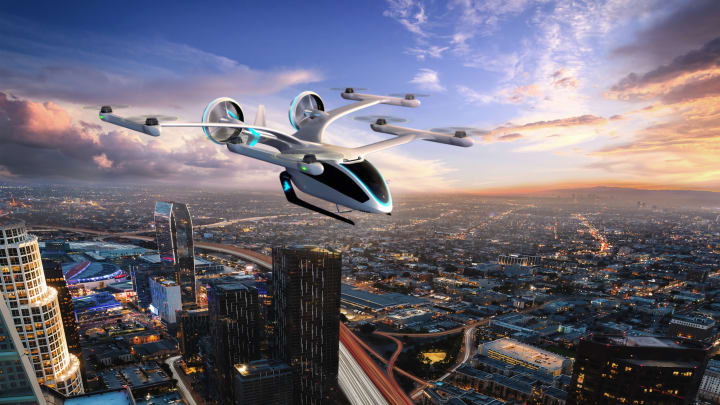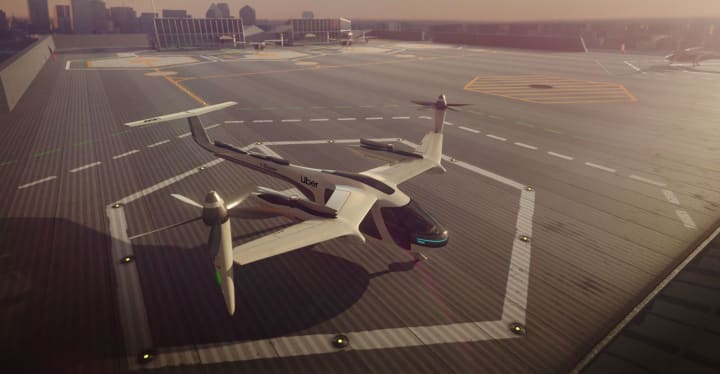
Uber has been in talks to offload their flying car division called Elevate to Joby Aviation. A deal could be announced later this year. Elevate plans to offer on-demand air taxis in Los Angeles, Dallas and Melbourne by 2023.
In 2016, Uber announced their “Elevate” project, a well-researched proposal outlining an on-demand aviation system of transportation for cities across the world. Elevate has taken an asset-light, ecosystem-stewardship approach to bringing its idea to a reality, creating economic models and aircraft performance targets, which Elevate shared with outside companies and investors to build against.
The promise of a spot on Uber's future flight service and access to the billions of customers the app serves in cities around the world each year, was enough to entice at least eight companies, including Joby Aviation, to at least begin developing, prototyping and certifying an aircraft fit for the company's mission. Many other companies have since abandoned their eVTOL projects, shifted their focus away from urban passenger transportation, or had difficulty raising funds.

Uber Elevate has made more direct contributions to the advancement of UAM's vision, including working closely with regulators such as the Federal Aviation Administration to certify these electric propulsion aircraft.
Uber Elevate has also developed airspace simulation technology, through conducting studies of on-demand and suitable markets for UAM, and is also creating a suite of cloud-based services to provide safe aerial operations.
Joby Aviation, the only one of eight Uber Elevate partners that remained committed to bringing the aircraft to market on the company’s ambitious 2023 timeline, seems like a great shift for the company. Joby also intends to operate its own separate aircraft service, for which the company will require software expertise and could potentially leverage Elevate’s current infrastructure, airspace and operations partnerships.
Mike Hirschberg, executive director of the Vertical Flight Society said “When Joby joined Uber as a vehicle partner in December 2019, I said it was a ‘match made in heaven’ because they are the leading eVTOL aircraft developer and Uber the leading air taxi ecosystem developer. One of the reasons Joby didn’t join before then is because they were considering providing their own service.”

What the sale of Elevate means for the company's other partners is unclear. Some have begun forming other partnerships. Others have started moving their focus away from passenger-carrying air taxis or halted development entirely. The Elevate team’s elaborate knowledge of each partner’s aircraft — each a competitor to Joby — is a likely variable for companies moving forward in the market.
Uber Elevate was the driving force behind the tight goal of a 2023 launch for commercial eVTOL services, with Joby and Volocopter being the only other companies committing to the same year. Several aircraft developers — including Hyundai, Bell, Jaunt, and Lilium — plan on launching their aircraft services later this decade.
There are also cities outside of Elevate’s launch locations that have announced longer timeframes for beginning UAM operations. Osaka, Japan intends to have eVTOL services in coordination with the region’s World Expo 2025. Seoul, the capital of South Korea, announced the same timetable for the first operation of air taxis, although its likely domestic vehicle partner Hyundai will not be ready until 2028.
The biggest shockwave the industry could feel is if Elevate is disconnected from Uber. Joby, Lilium, and a few other developers of air taxis have expressed interest in developing their own platforms, a massive resource investment based on core competencies completely different from aircraft development, but none of them have explored the realities of fast multimodal on-demand transportation, like Elevate has done with its Uber Copter service in New York City.

Of course, existing helicopter operators can snap up eVTOLs and offer rides through gridlocked cities, but for these trips to add value for customers, they must offer time savings that require a consistently perfect handover from car to aircraft and back - something that UAM services like Blade and Skyryse have struggled with. When riders lose valuable minutes when changing their mode of transport, or waiting for other riders to fill the vehicle, it becomes difficult for an air taxi service to bear the costs.
The eVTOL industry has likely graduated to the point where it can move on with the disappearance of Uber Elevate, or its transition into a part of a leading aircraft developer. But Elevate's absence from its central cheerleading, thought-leadership, and organizational role will surely be felt, at least until other companies take over the mantle.
About the Creator
Buzzword
BuzzWord features, news, reviews and top ten lists.






Comments
There are no comments for this story
Be the first to respond and start the conversation.